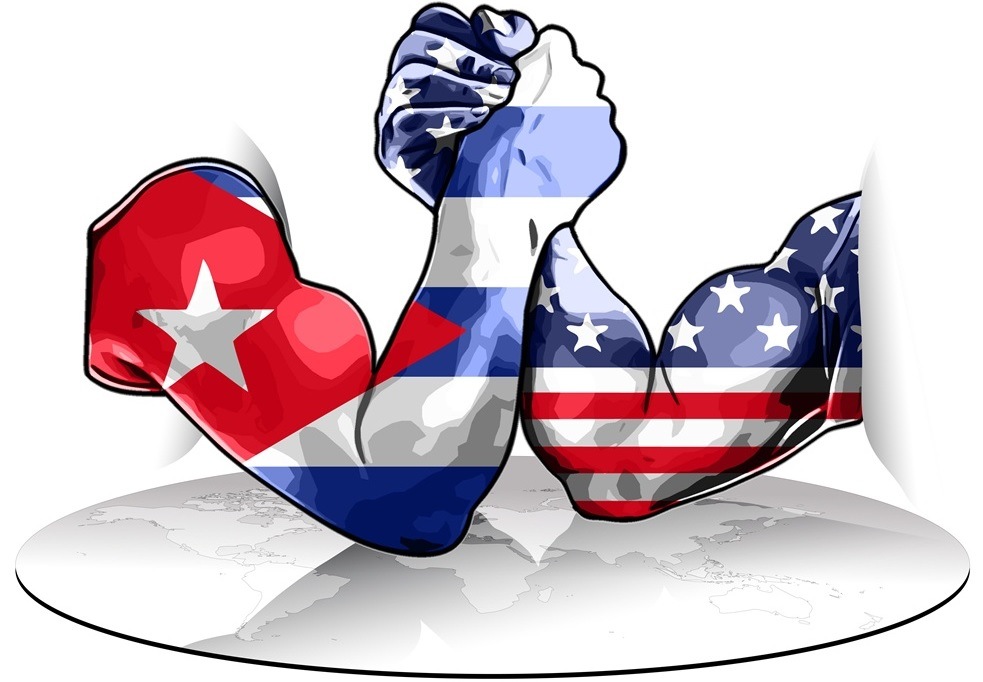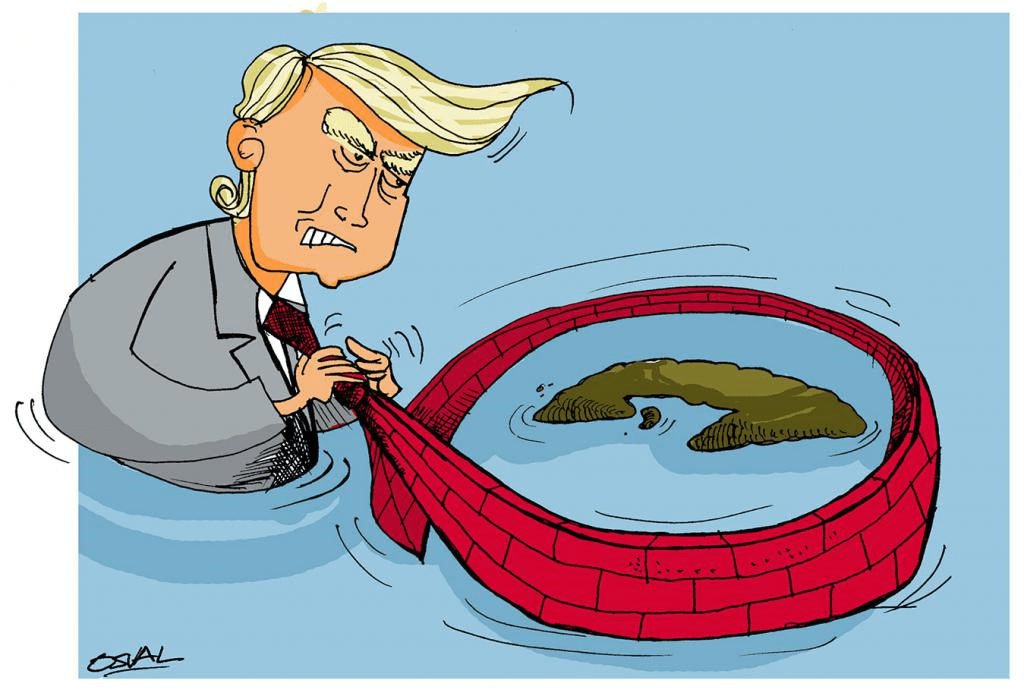RIO DE JANEIRO, BRAZIL – As in the worst times of the Cold War, tensions between Washington and Havana have escalated in recent days amid the coronavirus pandemic.

First, Secretary of State Mike Pompeo harshly attacked Cuban cooperation in several countries, accusing the island of “taking advantage” of the epidemic “to continue its exploitation of Cuban medical workers”.
So far, nothing new – except that in his attack on Wednesday, Pompeo criticized two partner nations, Qatar and South Africa, for hiring almost 450 health professionals from the island in order to confront the Covid-19 in their territories.
Cuban President Miguel Díaz-Canel immediately reacted by stating that “the US deliberately misleads when it attacks Cuba’s cooperation with lies and slander”.
One day after that squabble, a Cuban-American citizen fired a gun at the Cuban Embassy in Washington in an incident that further escalated the tension between the two governments.
Cuban Chancellor Bruno Rodriguez on Thursday called Mara Tekach, the US business representative in Havana, to express a “forceful protest” for what he considered a “terrorist attack”. Rodríguez said that it is impossible to “dissociate a fact like this from the intensification of the policy of aggression and hostility pursued by the US government against Cuba, nor from the hardening of the blockade” and “the attacks against Cuban medical cooperation”.
The shots were fired on Thursday, when there were some ten diplomatic officials inside the building, which placed them “in serious danger”, according to the Cuban government. The gunman, identified by police as Alexander Alazo, a 42-year-old man living in Texas, was charged with attempted murder.
“This attack was encouraged by the growing hostile rhetoric against our country, in which both the secretary of state and senior officials in that department are publicly and systematically involved,” Bruno Rodríguez said.
In addition to the shooting, the new political clash between the two countries has focused, since the onset of the coronavirus health crisis, on the so-called white coat diplomacy, through which Havana has already sent 22 health brigades, with nearly 1,500 doctors, nurses and technicians, to 21 countries, most in the Caribbean, Latin America and Africa, but also Italy, Andorra and, with authorization from Paris, the French overseas territories of Martinique, Guadeloupe, and French Guiana.
Since the first plane with Cuban medical personnel left Havana, the US has launched a campaign to discredit this cooperation, which for Washington is “self-interested” and “propaganda”, while for the island it is simply “humanitarian and solidary”.
In recent weeks, US officials have criticized this cooperation on several occasions, but never with the virulence of the last few days. On Wednesday, the same day that Mike Pompeo asked that his Embassy in Venezuela be prepared for when Maduro leaves power, the Secretary of State attacked Cuba over medical professionals sent to South Africa (217) and Qatar (229), two countries close to Washington.
Pompeo accused Cuba of profiting at the expense of its staff and asked the other governments not to help Havana in this regard. “We note how the regime in Havana took advantage of the Covid-19 pandemic to continue exploiting Cuban medical workers,” he said. And he added: “Governments that accept Cuban doctors need to pay them directly. Otherwise, when they pay the regime, they are helping the Cuban government to profit from human trafficking”.
Pompeo went on to congratulate “the leaders of Brazil, Ecuador, and Bolivia,” where 10,000 Cuban professionals worked when their governments were allies of Havana, for “refusing to turn a blind eye to these abuses by the Cuban regime. “We ask all countries to do the same, including South Africa and Qatar.

Suspending the embargo
Washington accuses the Cuban executive of exploiting its professionals and withholding 75 percent of doctors’ salaries in these missions, while Havana argues that the cooperation is not billed to impoverished countries and that the resources obtained are used to finance its free health system, which has more than 95,000 doctors (nine for every 100 inhabitants) and 85,000 nurses.
“What right does the US Secretary of State have to pressure sovereign governments to deprive their citizens of medical assistance?” the Cuban Chancellor asked. “It’s a time for solidarity, not pettiness,” Rodríguez added, saying that despite Washington’s efforts to discredit it, the work of Cuban doctors “is requested and internationally recognized”.
The return to dialectics and Cold War tensions occurs in the midst of a severe economic crisis in Cuba, compounded by the pandemic, and yet there is no truce. Cuba, where 1,649 confirmed cases of the virus have been reported, and 67 deaths, has called for the suspension of US sanctions, which this year complete six decades.
The reaction of the Trump Administration, which has stepped up the embargo since it settled in the White House, implementing the most controversial articles of the Helms-Burton law and stifling the Cuban tourism sector with several measures, seems clear: the worse in Cuba, the better.

